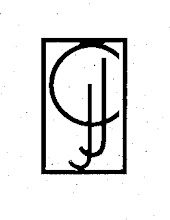
s I walked across a local park recently, I saw a large wooden sign that gave me pause. I had to read it twice to make certain I was reading it correctly. Here's what it said:
To aid your enjoyment
please eliminate
ball playing
dogs
litter
Besides the obvious lack of punctuation, the word eliminate confused me about the message. Had the writer of this warning used a dictionary, s/he would have discovered these definitions for eliminate: to put an end to, to get rid of, to expel (to force to leave)—none of which convey the real meaning of the sign.
It's not a mandate to rid the park of things (ball players, dogs, litter) that are already there. Nor is it suggesting that people would enjoy their park visits more if they eliminated one or more of the items listed. It's a plea to park users to prevent any of these things from being in the park in the first place. People aren't being given permission to "put an end" to dogs; they're being asked to NOT play with or walk their dogs within the park's boundaries.
Sometimes when we search for a way to say something politely or to say it without ruffling anyone's feathers, we get trapped in a world of euphemisms and synonyms and quickly digress from our original intent. Sometimes the best way to say something is the most straightforward way:
please eliminate
ball playing
dogs
litter
Besides the obvious lack of punctuation, the word eliminate confused me about the message. Had the writer of this warning used a dictionary, s/he would have discovered these definitions for eliminate: to put an end to, to get rid of, to expel (to force to leave)—none of which convey the real meaning of the sign.
It's not a mandate to rid the park of things (ball players, dogs, litter) that are already there. Nor is it suggesting that people would enjoy their park visits more if they eliminated one or more of the items listed. It's a plea to park users to prevent any of these things from being in the park in the first place. People aren't being given permission to "put an end" to dogs; they're being asked to NOT play with or walk their dogs within the park's boundaries.
Sometimes when we search for a way to say something politely or to say it without ruffling anyone's feathers, we get trapped in a world of euphemisms and synonyms and quickly digress from our original intent. Sometimes the best way to say something is the most straightforward way:
So everyone may enjoy this park,
the following are prohibited:
ball playing
dogs
litter
the following are prohibited:
ball playing
dogs
litter



No comments:
Post a Comment